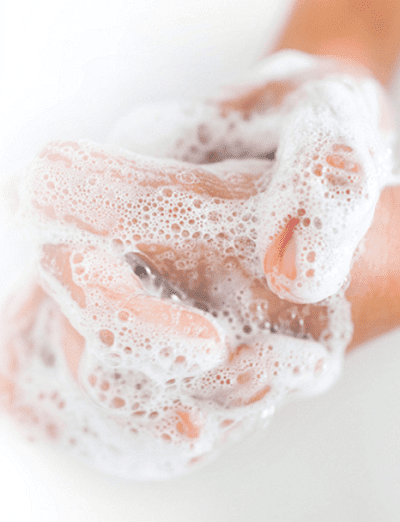Having now completed our series of blogs on the key aspects of hygiene in the workplace, it seems like a good time to review the entire programme and examine the 7 hygiene essentials we identified.
Table of Contents
Why Toilets Smell and How To Improve Washroom Air Quality
Starting with the washroom, we took a look at the malodours in toilets, namely resident and transient, and how a plethora of technology now exists to help combat them. Odour neutralisers not only create a pleasant washroom environment but also help to destroy airborne bacteria using UV light technology.
In addition to eradicating the nasty smells it is also possible to improve the air quality in the washroom thanks to the very latest in fragrance delivery technology. These innovative fragrance dispensers distribute particles which penetrate the malodours and convert them into a neutral base. This process effectively replaces the unpleasant aromas with a fresh fragrance, which improves the washroom environment.
Intelligent Water Management
The next blog in the series took the form of a guide to waste water management and looked at how intelligent water management can lead to considerable cost and efficiency savings, and how this is good news for both the environment and the finances. The guide identified key steps to cleaner, more efficient toilets & lower water costs, the first of which is a deep clean of sanitary ware and pipe work. This is then followed by the installation of ActiFlow urinal cartridges working in conjunction with water management systems they reduce the number of flushes needed and reduce water wastage. Then we have the Actiflush button, a clever little device that converts a standard flush into a fully variable one.
Efficient Waste Management
The 3rd subject in the list of 7 Hygiene Essentials is effective and efficient waste management. We looked at the huge advantages of using a professional waste management company to not only provide the knowledge and expertise required in this complex area, but also to help overstretched facilities departments to operate this function effectively. Keeping abreast of the latest legislation regarding the hygienic disposal of sanitary, clinical, hazardous and offensive waste is vital for all companies to ensure they comply and therefore it makes sense for a lot of businesses to outsource their waste management function.
The Importance of Hand Washing
Next in the series, we looked at how promoting hand washing in the workplace is important in maintaining a healthy and happy workforce. Providing a hygienic environment and promoting hygienic practises helps to reduce the transfer of bacteria and germs, which can cause illness to spread through the workforce. The presence of well-stocked and hygienic soap dispensers containing moisturiser-enriched foam soap encourages people to wash their hands and limit the spread of bacteria. However, the blog also identified that maintaining such standards can be difficult for many businesses, especially those with high traffic washrooms, which is why many companies now opt to employ a washroom hygiene service.
The Hot Topic of Hand Drying
An often-neglected aspect of hand hygiene is hand drying. It is in fact just as important as the practise of hand washing and sanitising. Sixth in our series of Hygiene Essentials, we took a look at how modern electric hand dryers compare to their traditional counterparts and the classic paper towel. Using Citron’s money saving calculator we compared the latest generation of electric hand dryers (electric hand dryers, eco hand dryers, automatic hand dryers, blade hand dryers) with traditional dryers, roller towel and papers towels.
Perhaps unsurprisingly, the modern dryers came out firmly on top in the test, with the efficiencies afforded by the technology ensuring they are kinder to both the environment and the bank balance – to the tune of almost £800 per year in some cases. In addition to the savings, the modern dryers are also a far more effective means of drying hands, ensuring the spread of germs via wet hands is avoided.
Hand Rubs
In addition to effective hand washing, the use of hand cleaners is also becoming a popular means of hand hygiene, especially in situations where it is not possible to provide soap and water. In our 7 Hygiene Essentials we looked at how using hand rubs helps to fight germs and stop the transfer of bacteria between individuals. Known to kill 99.99% of bacteria, hand cleaners work by removing the skin’s outer oil layer, dissolving harmful bacteria without damaging the skin. In addition, as sanitisers require no water, companies can position hand rub dispensers throughout their premises, increasing the likelihood of them being used regularly.
Surface Cleaning
The final blogs in the series examined how cleaning surfaces such as desks, computers and other equipment in the workplace is vital in helping to maintain a clean and healthy working environment and reducing the presence of allergens which can cause misery for allergy sufferers throughout the year. We examined some startling data from microbiologist Dr Charles P. Gerba that suggests the average desk is 400 times dirtier than the average toilet seat(!) and looked at how anti-bacterial desk wipes and computer wipes are an effective means of cleaning surfaces in the workplace and removing harmful bacteria.
This concludes our guide to the 7 Hygiene Essentials in the workplace. To review the full series of blogs along with many others covering a wide range of hygiene topics, please visit our knowledge centre.
